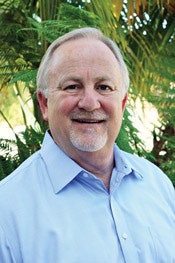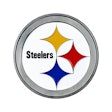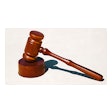By the time hospitality industry veteran Mike McDowell took over as president of the San Diego Sports Commission earlier this year, the group already had a well-established track record of helping the city host major sporting events - from Super Bowls to X Games to America's Cup yacht races.

By the time hospitality industry veteran Mike McDowell took over as president of the San Diego Sports Commission earlier this year, the group already had a well-established track record of helping the city host major sporting events - from Super Bowls to X Games to America's Cup yacht races. In August, the SDSC rolled out a universal code of conduct for fans who attend not only visiting events, but local ones, too. Paul Steinbach asked McDowell to share the thought process behind the code.
Q: Where did the idea for an umbrella fan code of conduct come from?
A: Los Angeles did it two years ago and called it the Southern California Code of Conduct, focused primarily on professional sports teams and venues. We took a good idea and we expanded it, including our collegiate partners, our high school partners and our youth sports. We think we have taken what they did well and hopefully improved it.
Q: Why did you feel a code was necessary in San Diego?
A: Really, the impetus was from the Chargers and the San Diego State Aztecs. Anything we can do to improve the environment and the fan experience is a positive, and we're using this code of conduct as a reminder that while you bring your passion to a sporting event - and, of course, the word "fan" comes from "fanatic" - you can't leave your personal responsibility in the car or at home. Have a great time, but understand that those around you are trying to have as much fun as you are.
Q: How will the code be communicated to the masses?
A: This is the type of thing that can be used by our partners as a function of their season-ticket and individual-game ticket sales, and in signage at venues and events. And it gives our colleges the ability to put it in student handbooks. Our friends in high school sports - the California Intercollegiate Federation - are very excited to have something like this to post at various venues and on high school sports websites.
Q: Does having such a code serve as one more selling point for San Diego as a sports destination?
A: When you're doing your checklists of pros and cons, I'm not sure a code of conduct is in the top five of the pros, but it's something we're able to list as an important commitment on the part of the community. Do we lead with that from a marketing perspective? No. But we are working hard to ensure a positive fan experience for all of our venues, for all of our teams, and for all of our destination events that come to San Diego. It gives spectators and promoters a point of reference: There's accepted and unaccepted behavior, and when we see the unaccepted behavior that is referenced in this code of conduct, we feel empowered to address that.
Q: Qualcomm Stadium was built in 1967 and was last updated in 1997. What are the odds the Super Bowl will return to San Diego any time soon?
A: The last time the Super Bowl was in San Diego, which was 2003, [then NFL commissioner] Paul Tagliabue announced that there will not be another Super Bowl in San Diego until there is a new stadium built. So that is the position of the NFL, and that's been on the table for more than 10 years. Now, the Chargers would love to have a new stadium built, and we believe that that would be a very valuable and important public asset, and as a sports commission we are interested in supporting a proposal that would accomplish that.
Q: The Chargers are one of a handful of NFL teams mentioned as potentially moving to L.A. What would such a move mean to the SDSC?
A: Ever since there hasn't been a team in Los Angeles, there's been speculation that has included the San Diego Chargers as a possible candidate for moving to Los Angeles, but we've lived with that for the past 12 years. Until there's a viable facility in Los Angeles, nobody's moving there. We would hate to lose the Chargers or any of our professional teams. They're part of the fabric of life in San Diego.
Q: Is there anything the SDSC can do to dissuade the Chargers from leaving?
A: Our most practical impact is an ability to build a successful coalition to support whatever the final proposal might be, to bring the community together around that proposal, and to work as hard as we can with all of our members and all of our resources to ensure that they'll stay. Beyond that, I don't know really what we're up against. We have no idea what the final proposal looks like. We have no idea what the competition looks like. We're kind of flying blind right now, but I'm sure that will clarify moving forward and our intent is to be there to facilitate success for the Chargers and to keep them in San Diego.

































